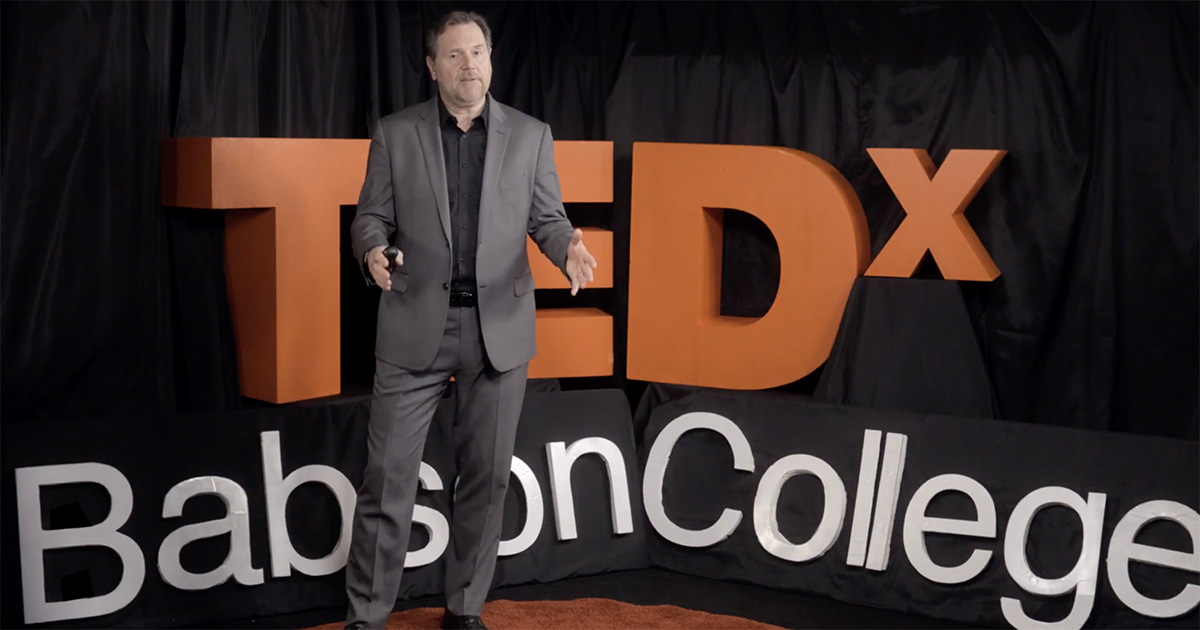If You Never Want to Lose Your Job, Develop These Four Skills

When it comes to changes in the world of work—transformation fueled by social forces that have only accelerated during the pandemic—the news can look a bit grim. Researchers at McKinsey Global Institute (MGI) estimate that over the next 10 years, some 400 million people around the world could lose their jobs because their tasks or occupations can be automated with existing technology.
That’s a sobering one out of every 20 people, said Sebastian Fixson, associate dean of academic programs and innovation at the F.W. Olin Graduate School of Business and professor of innovation and design at Babson College.
In a recent talk about the future of jobs at TEDxBabsonCollege, Fixson explored why the nature of how we work and what we do is undergoing widespread upheaval. He noted that, today, we typically spend only 40% of our time at work on role-specific tasks—those areas in which we have developed special expertise. The majority of our collective time is spent on coordination, searching for information, and communication.
This trend toward collaboration combined with digitalization is reshaping the nature of work. As a result, Fixson said, employees need to develop the following four core skills to remain irreplaceable.
1. Omniscience
Although “knowing everything” may sound like an impossible goal, Fixson said he is only half-joking. Now more than ever, employees must understand more than their own narrow field of expertise.
He provided the example of how a design engineer and technical analyst once moved pieces of a project back and forth. Now, computer-aided design can integrate those activities, allowing a single engineer to handle the entire work flow.
“Digital tools generally allow and enable substantial integration of what used to be neighboring process steps,” Fixson explained. So, one of the skills to become future-proof is to understand not only your area of expertise but also the steps before and after it.
TEDxBabsonCollege, which took place virtually for the first time in 2021, included a diverse panel of innovators discussing “Bridging the Gap, Breaking the Norms.” Watch the entire program:
2. An Entrepreneurial Mindset
“Because our environment becomes more turbulent, more volatile, more uncertain and ambiguous, new problems show up every day,” Fixson said.
The ability to identify and solve problems quickly therefore has become a skill that is vital to any job. Babson graduates are in good stead there, Fixson said, because “that’s what entrepreneurs do all the time.”
He pointed to U-Turn Audio, a Boston company that makes turntables, as an example of that skill in action. At every turn, the company founders found fast and low-cost solutions to problems of design, prototyping, manufacturing, and funding, which they addressed almost entirely online.
3. A Bottom-Line Focus
As our physical and digital worlds merge, those who recognize the business opportunities and models emerging as a result always will be employable.
For example, Fixson said, an employee of an excavation business might realize that the company could place sensors at various parts of the equipment—say, the boom that shovels earth and moves it around—to collect data to not only help it design a better next-generation excavator, but also to create predictive maintenance schedules and services that lead to better outcomes (and higher value) for customers.
“The future of work is innovation work. Innovation ultimately always leads to new work.”
Sebastian Fixson, professor of innovation and design at Babson College
4. Ethical Intelligence
When it comes to future employability, the ability to consider the full implications of decisions is just as important as the ability to see opportunities, Fixson said. He noted that four out of five Americans believe they have little control over the data that various entities collect about them. Future entrepreneurs and employees will need to take into account humans’ basic need for privacy and what that means for the type of businesses and business models we advance.
In short, anyone who wishes to stay employed best seek to become a lifelong learner dedicated to sharpening their entrepreneurial skills. “The future of work is innovation work,” Fixson said. “Innovation ultimately always leads to new work.”
Posted in Community



